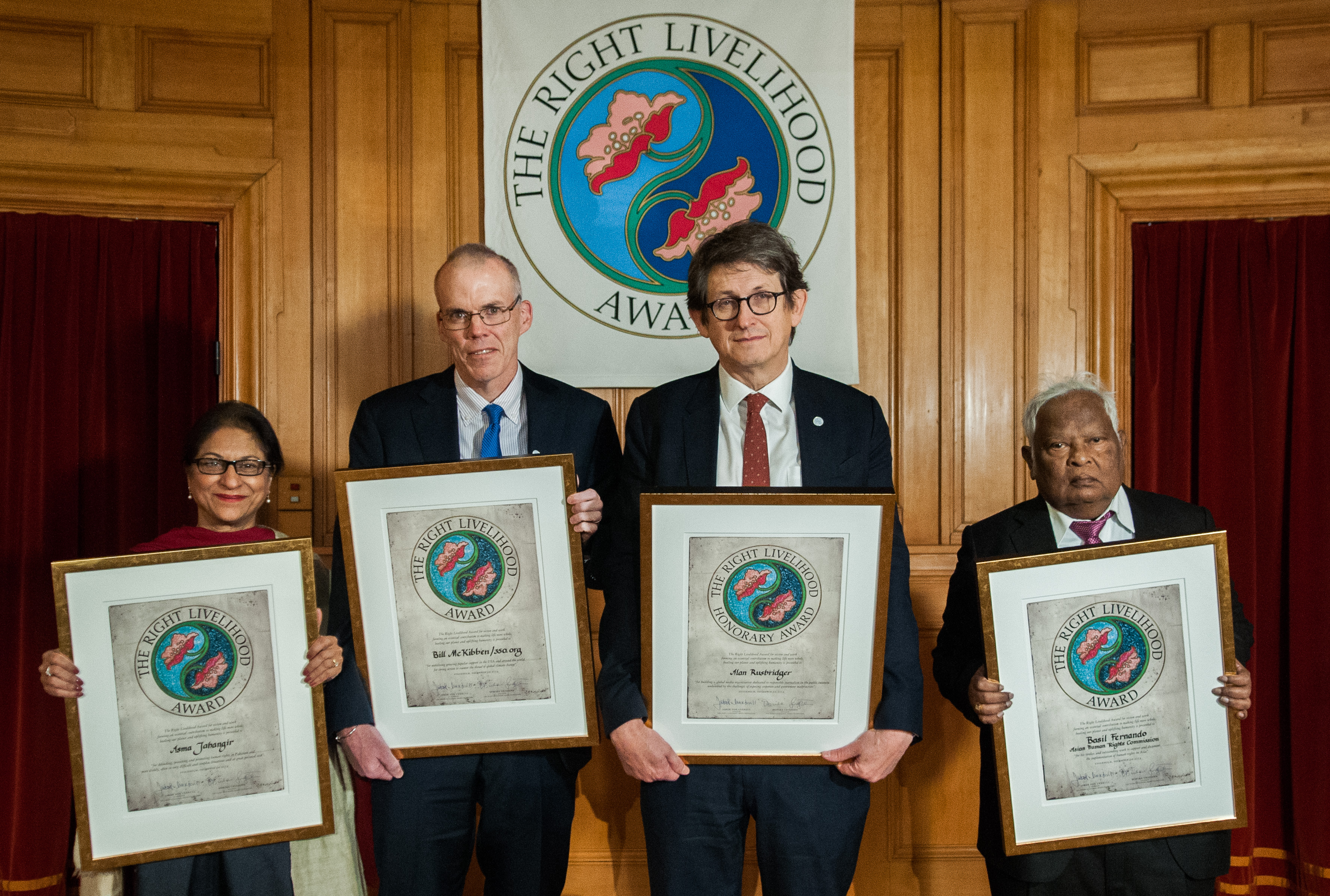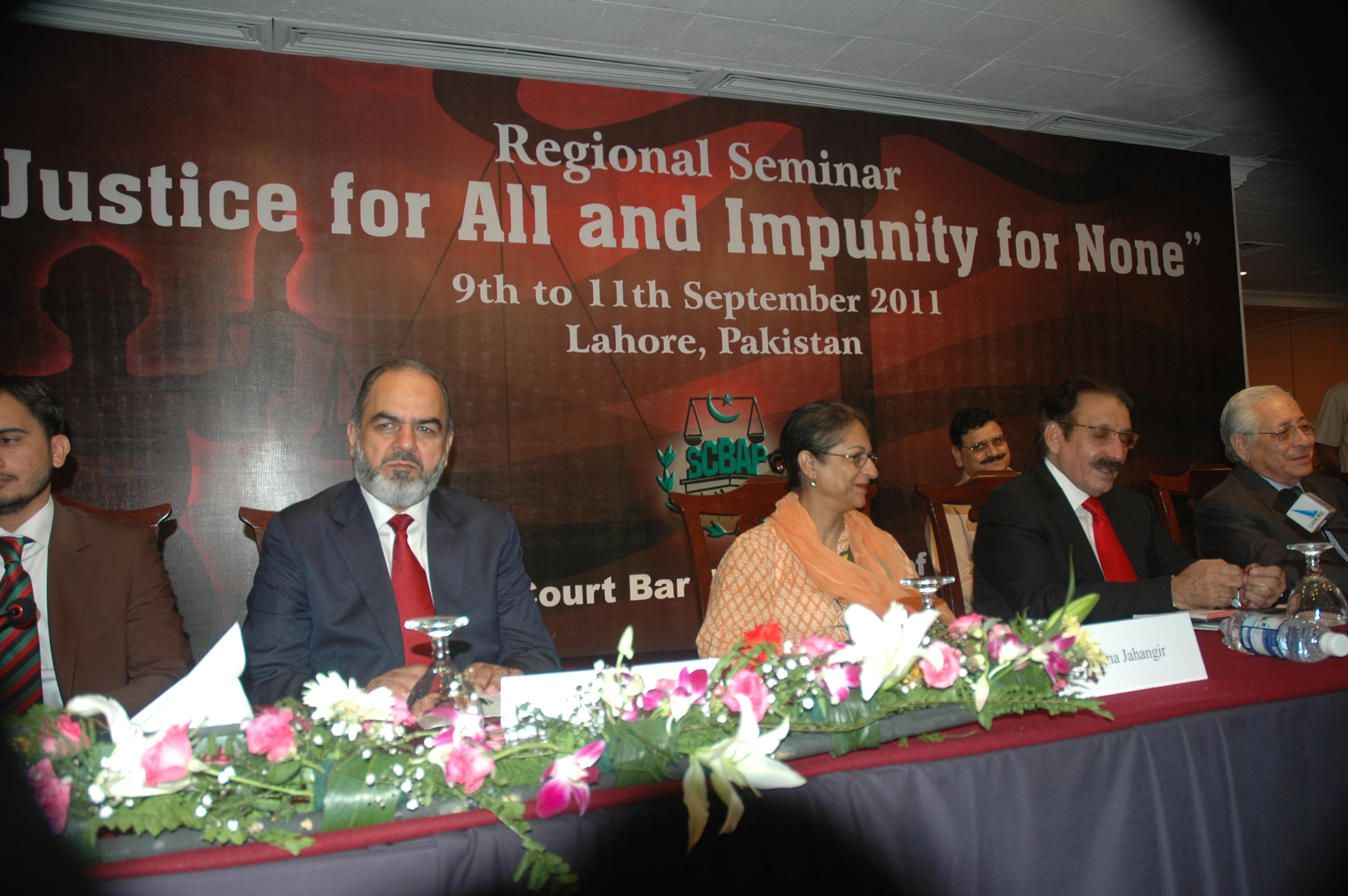"Every restriction is based on religion"

Asma Jahangir is a 62-year-old lawyer. She has been threatened, assaulted in public and placed under house arrest for her relentless campaigning against laws that discriminate against women. One of the co-founders of the Human Rights Commission in Pakistan, Jahangir has been actively promoting human rights and fighting complicated cases for over three decades, helping people in marginalised sections of society. At the awards ceremony in Stockholm on 1 December, Jahangir took the opportunity "to pay homage to several human rights activists, journalists, poets, writers, lawyers and labour leaders of Pakistan who have dedicated their entire lives to upholding freedom, justice and peace."
Asma Jahangir, how significant is this award for your work?
Asma Jahangir: When you are recognised somewhere, it gives you a louder voice; it gives South Asian human rights activists a louder voice, so this is not just an award for me but an award for all those people in the field working for human rights in very difficult circumstances in South Asia, particularly in my country Pakistan.
You say difficult circumstances, can you elaborate?
Jahangir: Well, difficult circumstances because it is a traditional society; it is a country where there has been dictatorship for a long period of time. We are still in a very fragile transition, we have religious extremism and religious militancy, and freedom of expression is very limited in certain areas, so these are taboos that you have to break all the time, and it is dangerous and risky to break these taboos.

What urgently needs to be done to change the situation of women's rights in Pakistan?
Jahangir: I think a lot needs to change for women's rights, but in particular the attitude that a woman is subservient to a man. There is still some anger if women do better, although there is a lot of lip-service paid to women's rights from Benazir Bhutto down to Malala Yousafzai. If a woman is recognised, certain extremist lobbies feel anger because a woman is being recognised and because she has done better than men. Violence against women is rampant, although the government has done what it could, there has to be education for men, so that they also begin to recognise that it is also in their interest for women to be treated in a non-discriminatory manner and with dignity.
Where do you think this process should begin?
Jahangir: I think this has to start in schools and with the curriculum in schools. When we look at the curriculum in schools it is always "a girl's house" and "a boy's village" or that the "mother is cooking" and the "father is going to work", whereas in actual fact, a large number of women work. It is not only just cooking; they do a lot more than that. I think that there is hardly a woman in Pakistan or anywhere in world who doesn't work. In fact, she probably works more than her male counterparts, but that appreciation and recognition is not there.
What role does religion play in not letting women have their rights in Pakistan?
Jahangir: A huge role. Every restriction is based on religion and is justified in the name of religion. If women do have equal rights in the family, that is also justified in the name of religion. There are laws that are discriminatory in many areas in Pakistan and again, all of them are justified in the name of religion. But then there are social habits like asking women to dress in a particular way, forcing your choices on women, whether it is dress, whether it is marriage, whether it is freedom of movement or expression ... it is forcing it down women's throats in the name of tradition and religion.
What other pertinent issues need to be dealt with urgently in Pakistan?
Jahangir: Women's rights have to go hand in hand with other rights. The fact is that there is large scale impunity in Pakistan for all kinds of violence, particularly violence against the vulnerable. That needs to change, which means better governance, better institutions of state. What needs to change are the taboos on freedom of expression, not only for women but also for men, and we need an open debate on the rights of women without bringing tradition and religion into it and a recognition of the role that women have played in building society in Pakistan in a positive way.

What projects are you currently involved in?
Jahangir: I am involved in a number of things such as the question of the rule of law and how to strengthen it. I have several cases right now where my clients are in jail on trumped up charges because they are very poor. I also have clients with blasphemy cases. I have women clients who have been accused of murder by in-laws and framed, and simply because they have very limited access to justice, they have not been given a fair deal. I have also been working on cases of disappearances in Pakistan and arbitrary detentions in certain areas of Pakistan, where people are kept for 3 or 4 years on charges of terrorism. We are also fighting anti-terrorism laws that do not conform to international human rights standards.
In your daily struggle to help bring justice to vulnerable people what kind of problems do you encounter?
Jahangir: In a number of cases or issues, it is the security forces themselves that work against you. Unfortunately, I find the most difficult task is moving the courts so that they are able to give relief to those who are suffering in a timely manner. Then I am always confronted with religious extremists, organisations and lobbies who feel that when we talk of honour killings being a crime, we are not recognising social norms, but are corrupting the minds of the youth. So obviously, there are factions who are against us, but then there are also a number of people who support us. And the fact is that things have changed because of this consistent movement. Honour killing is one example. Now there is a law where honour killing is recognised as a crime and it cannot be forgiven by the family.
How difficult has it been for you as a woman activist to make a stand in society?
Jahangir: It has been tough both inside and outside the home because when I started working, I belonged to the first generation of women to really start working outside the home. Mine was the first generation where it became the norm for women to work outside the home. Also, in a profession that is very male dominated, it was not easy to start with: the confidence that you would expect people to have as a professional came quite late in life.
Interview conducted by Roma Rajpal Weiss
© Qantara.de 2014
